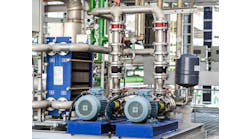International Specialty Products Inc. (ISP) has good news and bad news for its customers. The bad news: The Wayne, N.J.-based company, which develops, manufactures, and supplies specialty ingredients that enhance product performance, will increase global prices for polymers, vinyl monomers, biocides, emollients, emulsifiers, preservatives, and encapsulates 3% to 5% effective Dec. 1, 2009.
This increase applies to products sold into the personal care, pharmaceutical, oral care, beverage, performance chemicals, biocides, and agricultural markets. According to the company, the price increase is necessary due to cost escalation during 2009 and shortfalls from the impact of modest 2008 price increases.
[sidebar id="1"]The good news: ISP launched a Web site that provides information about lignin protection and the creation of high quality wood coatings products.
The Web site (ispwoodcare.com) focuses on four major sources of wood degradation and the technical solutions that will allow coatings formulators to produce higher performing wood-care products. The site looks at the root causes of wood degradation by visible and ultraviolet light (UV), water and moisture, insects, fungi and algae, and suggests formulation approaches that manufacturers of wood coatings can take to create new industrial and consumer products. The site contains an overview of the new issue of lignin protection as a strategy for protecting wood. It features a technical library of literature, formulations and test results that support higher performing wood-care protection coatings.
“In our R&D and technical laboratories we’ve found that novel technologies designed to address the principles causes of wood degradation will help formulators create higher performing wood protection products,” says Scott Edris, senior director of global marketing, Performance & Agricultural Chemicals. “[The Web site] is designed to inform the industry about new ways of formulating products and new generations of chemical technologies that extend the performance and protective properties of primers, stains and top coats.”
In other ISP news, ISP Global Beverage Services, maker of Polyclar stabilizers for beer, wine, juice, juice condensates and malt extracts, recently introduced stabilization technologies. These include a stabilizer formulated with 100% polyvinylpolypyrrolidone (PVPP), as well as three new granular Polyclar products for wine: Polyclar Prevent, Polyclar Cure and Polyclar Wine.
“Our new granular Polyclar stabilizers for beer and wine make our clean technology even cleaner,” says Mika Unting, ISP senior manager of new business development for Europe and certified brewing engineer. “Like all of our stabilizers, they do not cause chemical interactions, contain no enzymes or GMOs, are 100% removable by filtration, and require no additive labeling.”
ISP invented PVPP stabilizers in the late 1960s. “We continue to innovate our technologies for the benefit of our customers,” says Mustafa Rehmanji, ISP Global Beverage Market Director. “Here we are first-to-market yet again, now with granular formulations that are low dust, fast wetting, and make for easier and more efficient slurrying of stabilizers.”
